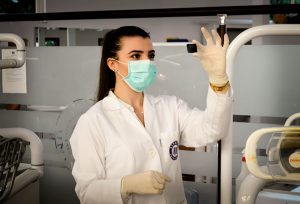As reports of Coronavirus continue to dominate headlines, OSHA recently offered information on preventing exposure.
Coronavirus is a deadly respiratory illness linked to origins in a seafood and animal market in Wuhan, China, according to the CDC. Symptoms include cough, fever, and shortness of breath. So far, only eight people in the U.S. have contracted the illness. In China, more than 14,000 people have been affected – 305 of which passed away.
In OSHA’s online resource, the agency states that most American workers are not at significant risk of infection. The workers who need to take extra precautions are those involved in airline operations, healthcare, and border protection. In China, the virus has been spread from infected patients to healthcare workers.
All workers are advised to take these health precautions, similar to flu prevention: wash hands with soap and water, avoid touching eyes, nose and mouth with unwashed hands, and avoid close contact with people who are sick.
In the notice, OSHA outlined recommended precautions for different occupations:
Healthcare Workers
- Until more is known about how the virus spreads, CDC and OSHA recommend using a combination of standard, contact, and airborne precautions (including wearing gowns, gloves, NIOSH-certified disposable N95 or better respirators, and eye/face protection) to protect workers with exposure to the virus.
- The CDC and the World Health Organization (WHO) both published a list of interim infection control recommendations when the Coronavirus is suspected.
Clinical Laboratory Workers
- Workers should familiarize themselves with the CDC’s interim laboratory biosafety guidelines for handling specimens associated with Coronavirus infection
Airline Workers & Border Protection Workers
- Airline and travel workers are advised to consult OSHA’s airline worker MERS infection prevention and control recommendations. Border Protection workers should consult OSHA’s general MERS infection prevention and control recommendations.
Waste Management Workers
- Workers and employers should manage waste contaminated with the virus as they would any other regulated medical waste. Use appropriate engineering and administrative controls, safe work practices, and PPE, such as such as puncture-resistant gloves and face/eye protection, to prevent worker exposure to medical waste, including sharps and other items that can cause injuries or exposures to infectious materials.
- Consult the regulated medical waste information in CDC’s guidelines for environmental infection control in healthcare facilities, CDC’s interim infection prevention and control recommendations for hospitalized patients with MERS, and OSHA’s general MERS infection prevention and control recommendations.
While Coronavirus still remains a distant threat, employers should keep themselves aware of any new developments and requirements that arise. Both www.osha.gov and www.cdc.gov have the latest news updates.
***
About Worksite Medical
In most cases, OSHA requires medical surveillance testing, and at no cost to employees.
Worksite Medical makes that program easier with mobile medical testing.
We conduct on-site respirator fit tests, as well as pulmonary function test and heavy metal lab work, right on your job site. We also keep accurate, easy-to-access medical records for your convenience. You’ll keep your employees at work, and stay ahead of OSHA inspections.
With Worksite Medical, a mobile medical testing unit — we can bring all the resources of a lab to you. Our certified lab technicians can perform both qualitative and quantitative respirator tests to ensure a perfect fit.
Protect your team and your workplace now with Worksite Medical. Not sure what you need? Try our medical testing wizard here.
Give us a call at 1-844-622-8633, or complete the form below to schedule an on-site visit or to get your free quote!




